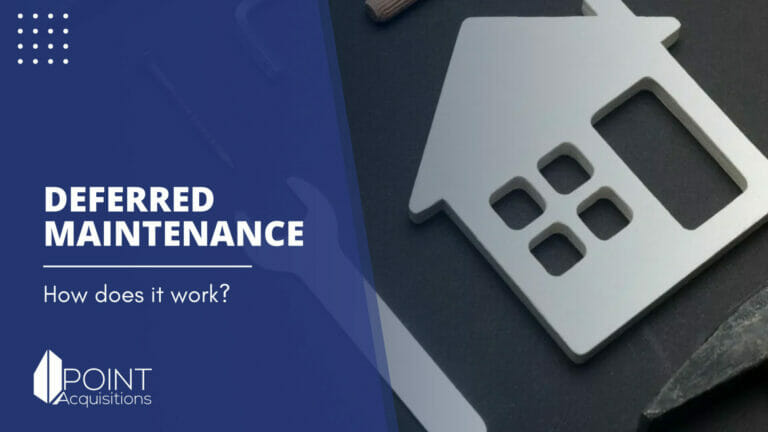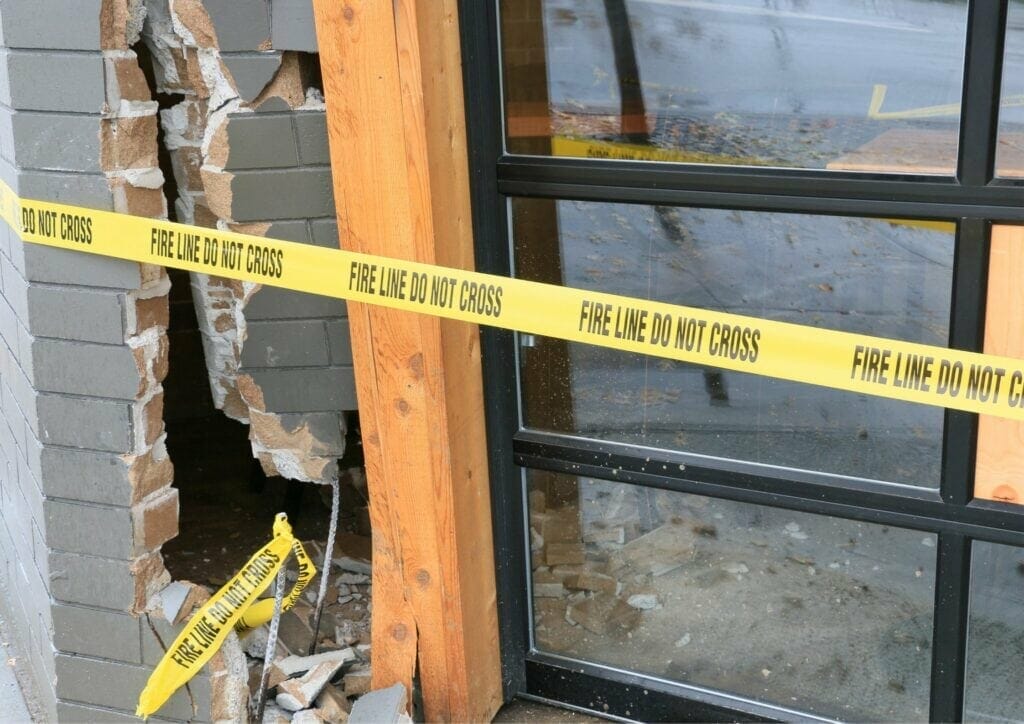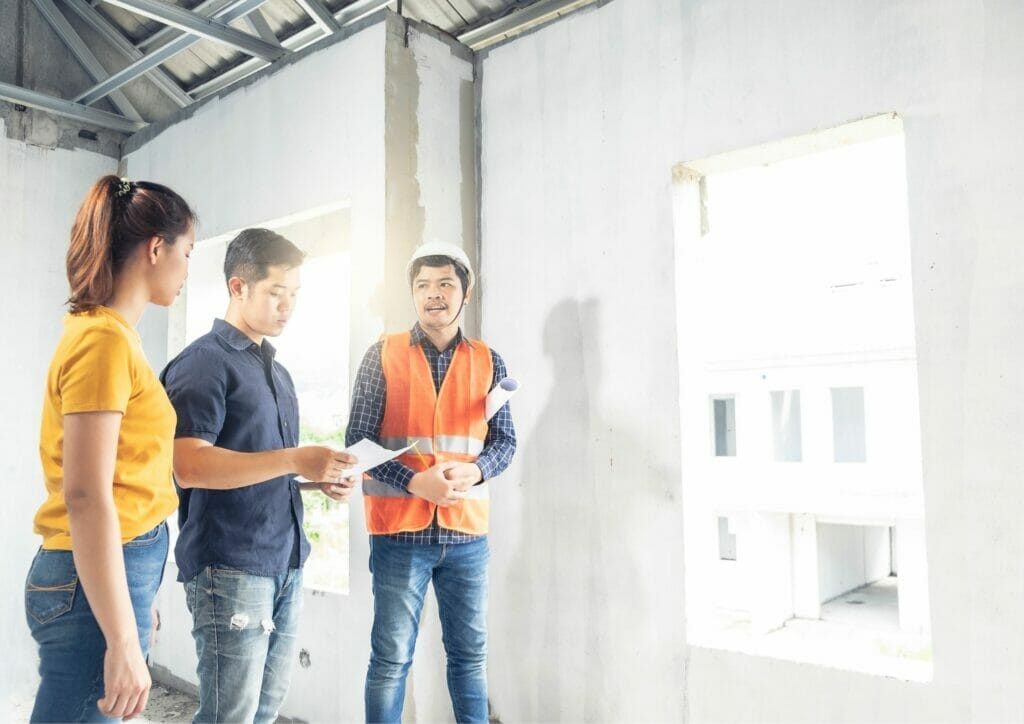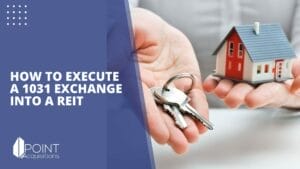
Deferred Maintenance: A CRE Costly Danger
CRE professionals have long recognized deferred maintenance as one of the leading causes of value erosion in commercial real estate. It’s also one of the most costly dangers a commercial real estate investor or owner can face. In this article, we explore the dangers of deferred maintenance and offer tips on how to avoid them. As the old adage goes: fail to prepare, prepare to fail. Keeping an eye on the present can save you in the future of commercial real estate.

Table of Contents
What is considered deferred maintenance?
Deferred maintenance means putting off repairs or upkeep on a property to save money at first. But, this can lead to bigger bills later, lower the property’s worth, and create safety issues. Fixing problems early can avoid these issues, keeping the property safe and valuable.
While some deferred maintenance may seem minor and inconsequential, it can quickly escalate into larger and more expensive problems down the road. For example, a small roof leak can easily turn into a much higher total repair cost if it’s not addressed in a timely manner and may lead to significantly larger problems.
Why is deferred maintenance so dangerous?
There are several reasons why deferred maintenance is so dangerous for commercial real estate owners and investors. First, it can lead to significant value erosion. This is because potential buyers will factor in the cost of repairs and renovations when considering a purchase price.
In addition, if you forego regular maintenance, it will cost you more in the long run. For example, deferred maintenance of commercial HVAC systems means they won’t run as efficiently and therefore use more energy to heat and cool a space, which in turn equals higher utility bills.
Major repairs can also create health and safety hazards. For example, a building with faulty electrical wiring could pose a serious fire hazard. Similarly, leaks in a roof or plumbing system could lead to water damage and mold growth – posing serious health risks to tenants.
Deferred maintenance can also lead to code violations and legal issues. If a property is not up to code, it could be subject to fines which in some cities can be significant. Moreover, it can potentially open one up to be sued by their tenants or neighbors should the deferred maintenance affect them.

How can you avoid deferred maintenance?
The best way to avoid maintenance backlog is to be proactive about it. This means regularly inspecting the asset and addressing the issues in a timely manner – call it, preventive maintenance. By creating a budget for repairs and maintenance, one can avoid putting off necessary work due to budgetary constraints.
Hiring a professional property management company is also a good idea. A good manager will have experience dealing with maintenance issues and will be able to help you create a plan to avoid them.
It is critical to understand that when you defer maintenance, this can lead to significant value erosion, additional issues as a result of deferring, increased operating costs, health and safety hazards, code violations, and legal implications. However, it can be avoided if you perform repairs and replacements proactively. Creating a budget for maintenance and hiring a professional property management company can also help you avoid maintenance issues.
Examples of Deferred Maintenance
There are some common examples of deferred maintenance in commercial real estate. These include:
- Leaking roofs
- Malfunctioning HVAC systems
- Faulty electrical wiring
- Loose stair treads
- Step cracks in brick
- Facade issues
- Mold growth
- Pest infestations
These are just a few examples of issues. The greater issue with deferred maintenance is that it only grows in scope — and cost — the longer it is prolonged.

What are the risks/dangers associated with deferred maintenance?
There are several risks and dangers associated with deferred maintenance. These include:
- Value erosion
- Increased operating costs
- Additional issues resulting from deferring maintenance
- Health and safety hazards
- Code violations
- Fines or shutdowns
- Lawsuits
These issues can significantly negatively impact a commercial real estate investment. When planning on deferring maintenance, it is important to be aware of these risks and dangers.
How do you manage deferred maintenance?
There are many ways to manage future expenses. These include:
- Regular inspections
- Timely repairs and replacements
- Creating a budget for maintenance scenarios
- Review annual operating costs and cash flow
- Hiring a professional property management company
By taking these steps, you can avoid or mitigate the risks associated with deferred maintenance. Regular inspections and timely repairs will help to keep small problems from becoming larger and more expensive.
Creating a maintenance budget will help you avoid putting off necessary work. And hiring a professional management company can provide you with the expertise and resources needed to manage reactive maintenance issues effectively.
Deferred Maintenance and its Effects on Selling a Property
Selling a property with deferred maintenance can be difficult. Buyers may be reluctant to purchase a property that needs significant repairs or upgrades. And if the deferred maintenance backlog is severe, it could make the property unsellable. If you’re selling a property with needed repairs, it’s important to either address those issues before a sale or to disclose the issue to potential buyers. Just know that these issues will surface upon a thorough inspection.
While deferred maintenance can be a significant issue, it doesn’t have to be. By being proactive about inspection and repairs, you can avoid its dangers. With a little bit of effort, you can sell your property. And if you find yourself with a property that needs work, don’t despair – options are available to you.

Deferred Maintenance and its Effects When Purchasing a Property
When you purchase a property, it is important to be aware of any deferred maintenance that may be present. This is “any necessary repair or replacement that has been ignored or postponed.”
For example, if the seller has neglected to repair a leaking roof for a long time and it is visibly so, there is a strong likelihood that the scope of work is greater than just the roof.
In short, while deferred maintenance is not always a deal-breaker, it is important to know any potential issues before making an offer on a property. Just remember that the greater issue with deferred maintenance is that it only grows in scope — and cost — the longer it is prolonged.
In conclusion
Deferred maintenance is a serious issue that can have far-reaching consequences. By definition, it is the repair or replacement of items that have been put off for a later date. While this may seem minor, it can quickly grow in scope if left untreated. Not only does deferring maintenance reduce the value of your property, but it can also lead to safety hazards and increased wear and tear, health issues, and worst open you up to lawsuits.
The bottom line is that deferred maintenance is not to be taken lightly. If you suspect your property may need repair, it is important to take action as soon as possible. You can avoid emergency repairs down the road by taking care of the problem now.
Learn more about maintenance in our blog Maintenance vs Capital Improvements.
About The Author

Jesse Shemesh
Disclaimer
Please note that Point Acquisitions is not a tax expert or tax advisor. The information on our blogs and pages is for general informational purposes only and should not be relied upon as legal, tax, or accounting advice. Any information provided does not constitute professional advice or create an attorney-client or any other professional relationship. We recommend that you consult with your tax advisor or seek professional advice before making any decisions based on the information provided on our blogs and pages. Point Acquisitions is not responsible for any actions taken based on the information provided on our blogs and pages.
How to Execute a 1031 Exchange into a REIT
Maximizing Your Investments: How to Execute a 1031 Exchange Into a REIT You’ve poured your blood, sweat, and tears into your commercial real estate investment. As you contemplate your next move, you face a familiar dilemma: how to capitalize on…
Read MoreWhat Is Cash Buyer
Getting a mortgage can be slow and uncertain in real estate, stressing buyers and sellers. But cash buyers offer a solution. Cash buyers equal reduced risk for sellers. Cash offers in commercial real estate reduce the risk of deals falling…
Read More1031 Exchange Capital Gains Tax Deferral
According to a 2021 report by the National Real Estate Exchange Services (RES), over 240,000 1031 exchange transactions were completed in the United States, totaling $100 billion. This impressive figure underscores the role of 1031 exchanges in the real estate…
Read More

